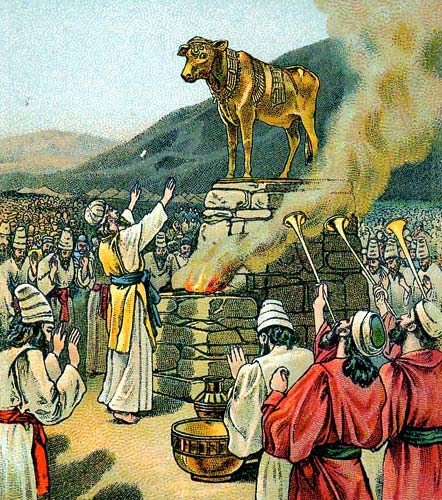
- This event has passed.
Rev. Dr. Richard Lints, Andrew Mutch Distinguished Professor of Systematic and Historical Theology, Gordon-Conwell Theological Seminary

Date
February 7, 2009 at 11:00 AM EST
Location
411 Willard Straight Hall
Institute of Biblical Studies
The annual Institute of Biblical Studies, sponsored by Chesterton House, Bethel Grove Bible Church, and New Life Presbyterian Church, is designed to teach from the Scriptures, challenging participants to deepen their knowledge and understanding of God’s Word. Past speakers have included Dr. D.A. Carson, Dr. Walter Kaiser, Dr. Roger Nicole, and Dr. Richard Pratt.
This year’s guest is Rev. Dr. Richard Lints, who will be speaking on the theme of Identity and Idolatry. The first lecture, “Identity & Idolatry: What’s at Stake?” will be delivered Friday evening, 7:30pm, on the Cornell University campus, and is free and open to the public. The conference will continue on Saturday and conclude with a Sunday morning sermon.
Created in the image of the Trinitarian God, human persons are essentially “social” in their identity. We find our significance and security in relationship to others. Created in the image of the Living God, we nonetheless find ourselves in relationship to images we have fashioned as an alternative means of finding significance and security. Tragically we chase after the very idols we have created. Highlighting the social connections between human identity and idolatry will help us understand the church as a “community of identity” and the distinctive manner in which “belonging together” lies at the heart of the Christian life. It may also unveil the radical character of reconciliation at the heart of the Gospel.
The Saturday sessions will be as follows:
Saturday morning: “Identity and Idolatry: The Beginning”
- Creation in the Cosmic Temple
- The Liturgy of Creation
- Relation and Reflection
- The Imago Dei
The Judeao-Christian tradition has always thought the foundation text of Genesis 1 was important in understanding human significance. In light of recent background studies on the opening chapters of Genesis, we can see worship as the preeminent concern of these texts. As a result, the core part of our identity is built around the question: Whom shall we worship?
Saturday morning: “Identity and Idolatry: The Tragedy”
o The Imago Dei spoiled
o The Story of Sin
o Sensory Malfunctions
The tragedy of the opening chapters of Genesis is spelled out in terms of the corruptibility of human identity. Sin is portrayed as a story in which our identity is embedded and in which our significance and safety is spoiled. The result is a chasing after a significance and safety which will endure. The surprise is that we find only idols in the chase.
Saturday afternoon: “Identity and Idolatry: The Image and the Idol”
- The 10 Commandments in a Different Light
- The Archetypal act of Idolatry (Golden Calf)
- The Absence of Divine Presence
The paradigm episode of Idolatry in the Scriptures is found in Exodus 32. This is the story of the Golden Calf, and it “echoes” all the way across the rest of Scripture. At the heart of the original story is the claim that Israel will become like what they worship. Like the golden calf, they have eyes but cannot see, ears but cannot hear and hearts that are hard – just like the Golden Calf. Understanding this dynamic may help open our own eyes and ears and hearts.
Biography:
Richard Lints is the Andrew Mutch Distinguished Professor of Theology at Gordon-Conwell Theological Seminary, where he has taught for the last 22 years. In addition he has taught as a visiting professor at Trinity College (Bristol England), Yale Divinity School, Westminster Theological Seminary (California), and Reformed Theological Seminary. He holds graduate degrees from the University of Notre Dame and the University of Chicago. He has authored or edited: The Fabric of Theology, Westminster Dictionary of Philosophical Terms for Theology, Identity in Theological Perspective, and Radical Ironies: Religion and the Rise of Postmodernity in the 1960s. He is also an ordained minister in the Presbyterian Church of America and has church planted in Concord, MA. He is married to Ann and they have three grown children.
